Foreign graduates allowed to job hunt
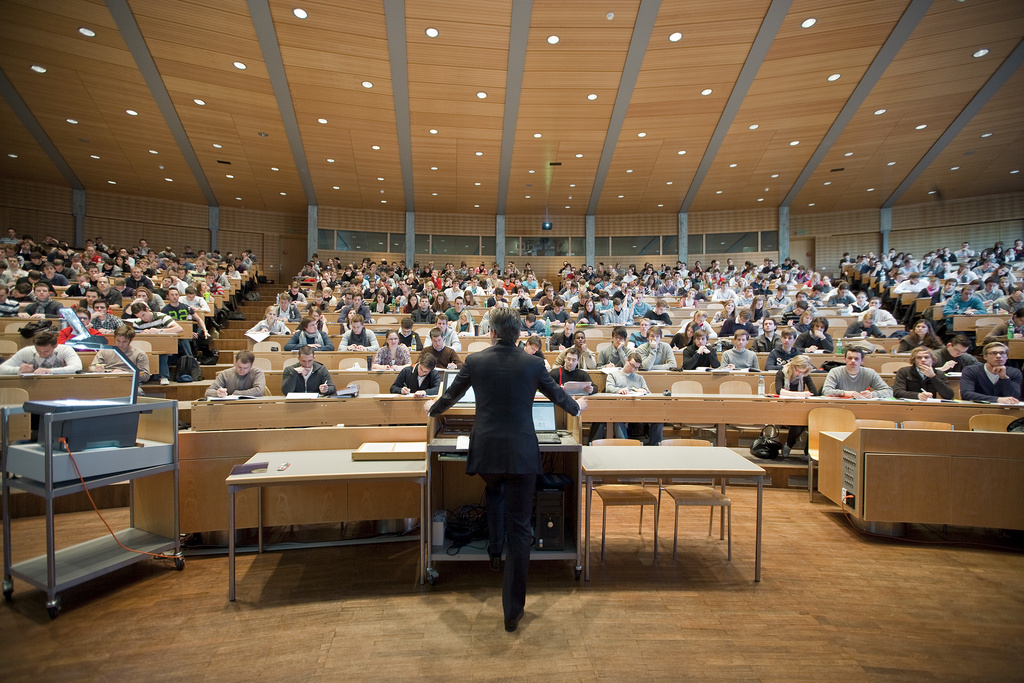
Foreigners who earn a degree in Switzerland will soon have a better chance of finding a job there, too.
Both parliamentary chambers have decided to allow foreign graduates to stay on for six months after their studies.
Currently, foreigners attending Swiss universities must return home after the final bell rings. That’s a missed opportunity, according to supporters of the motion, which passed the Senate on Monday with a vote of 28 to eight.
“Switzerland educates many highly qualified scientists, also from non-EU countries. Both they – and we – should have the chance to put their skills to use in our research and development fields,” Zurich senator Felix Gutzwiller stated at the recent parliamentary session.
The move will be especially significant for students from outside Europe – who do not benefit from the freedom of movement arrangements that make it easier for Europeans to live and work in Switzerland.
Gutzwiller and his fellow senators agreed that foreign graduate students should be allowed to stay if it is in Switzerland’s economic and scientific interest.
Also in favour was Ticino senator Filippo Lombardi, who pointed out that Switzerland annually recruits hundreds of highly qualified foreigners such as doctors and engineers.
“What’s better? Allowing foreign professionals to immigrate, or allowing those who have been educated at great expense at Swiss universities to stay and work here?” asked Lombardi while addressing his colleagues.
He also noted that it can be difficult to verify the qualifications of those educated abroad – a problem that doesn’t arise when the diploma is Swiss.
Caution
Yet not everyone is completely convinced. At the parliamentary session to discuss the motion, Justice Minister Eveline Widmer-Schlumpf cautioned that the move could lead to negative consequences for Swiss students faced with more competition.
“In Switzerland we have a relatively high level of unemployment, especially among young people. Some 40 per cent of university and technical college graduates can’t find work in their fields of study,” said Widmer-Schlumpf.
The number of foreigners pursuing higher education in Switzerland is significant and has been on the rise in recent years.
According to the Federal Statistics Office, the number of foreigners starting first or bachelor’s degrees increased by around eight per cent per year from 1997 to 2008. By 2008, 19 per cent came from abroad.
In addition, foreigners represent 18-20 per cent of master’s degree students and account for nearly half of those in doctorate programmes.
At the Federal Institute of Technology in Zurich, one third of all master’s students and almost two thirds of doctoral students are non-Swiss.
The institute’s director of international educational affairs, Anders Hagström, said the decision would make life easier for many of his students.
“Before this change, graduates wishing to stay on and work in Switzerland had to have found a job by the time they graduated, or be forced to leave,” Hagström told swissinfo.ch.
“This meant they had to go job hunting during the final months of their courses. Now they can concentrate on their exams and look for a job after they graduate.”
A chance
Despite the potential threat of added competition, many Swiss students have welcomed the parliamentary vote to allow their foreign colleagues better access to the domestic job market.
“I’m very pleased with how it worked out – it’s an important step in the right direction,” Union of Students in Switzerland member Markus Schmassmann told swissinfo.ch. This past spring, his organisation campaigned for the proposal, which was initiated by Vaud parliamentarian Jacques Neirynck.
“Now we have to see how the implementation of the law goes forward. There is still some work to be done – we hope that problems affecting students, graduates and the Swiss economy can be solved,” Schmassmann said.
The motion involves a revision to the law and is still subject to formal final approval.
Naturally, the news is a boon for those who stand to gain the most from the revised legislation.
“I think this change in the law is quite good because most of the foreign students have to invest a considerable amount of money to study here,” Lucerne University student José Luis Báez told swissinfo.ch.
Originally from Chile, Báez is pursuing a bachelor’s degree in international design management. He’s in Switzerland on an “L” student visa, which needs to be renewed annually. Báez has to pay up to 15 times more for tuition than a Swiss student would.
Báez may transfer to the school’s graphic design programme in 2011. While he doesn’t necessarily plan to stay in Switzerland after earning his degree, he would appreciate having the option.
“After your studies are over, if you have at least the chance to look for a job and find one, it’s a nice way to benefit from your investment.”
There was a big increase 1997-2008 (+8% per year) in foreign students beginning their bachelor or pre-Bologna degree studies in Switzerland. This boost is expected to continue in the next 2-3 years. Also many might stay on for master’s degrees, implying an increase in total number of foreign students in the next 2 years.
For the master’s degrees, the Federal Statistics Office does not know whether there is a real trend or the increase is due to structural changes linked to the Bologna process. There has been 18-20% foreigners starting masters in the past five years. This actually means a very large increase as in 2004 it was 20% of 3,500 people and in 2008 it was around 20% of 10,000 people.
It could be that the large increase of foreign students followed the increase in masters offered by Swiss universities under the Bologna process. In that case, a huge rise would not be expected in the next years.
For doctorates there has been a 30-year trend of high numbers of foreign students. In 2008 49% of people starting their PhDs were from abroad.
An overall future rise is difficult to predict as it could depend on political and administrative decisions.
(Source: Jacques Babel, Federal Statistics Office)
The Bologna Declaration of 1999 aims to create a European Higher Education Area by the end of 2010.
Students and teachers will then be able to move between countries in the area, and degrees obtained in one country will be recognised in all the others.
Switzerland is one of 46 countries in Europe that have signed up to the accord.
The new university course is divided into two stages: three years for a bachelor’s degree and two more to obtain a master’s degree.
The first bachelor courses started in Switzerland in 2001. The first degrees were awarded in 2004 (1,057, mainly in law and economy).
This year some 85 per cent of new students will be studying under the new system.

In compliance with the JTI standards
More: SWI swissinfo.ch certified by the Journalism Trust Initiative
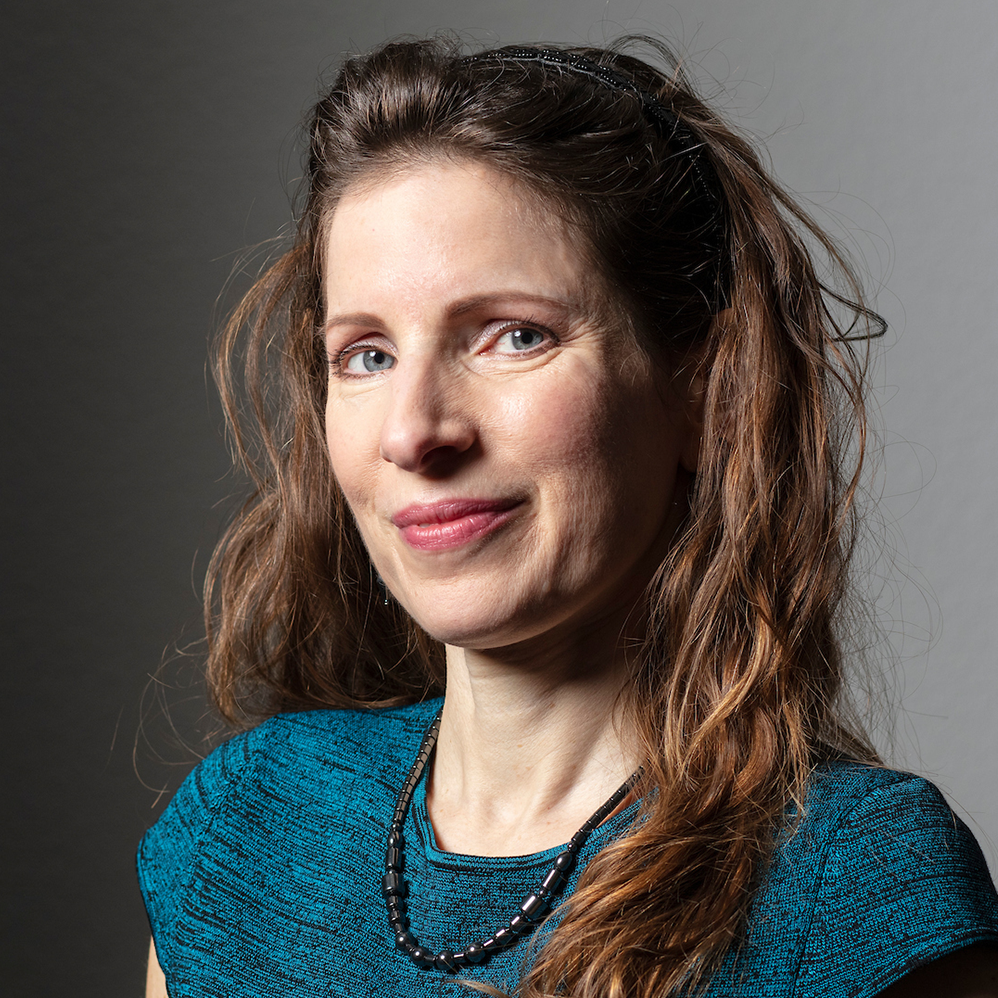
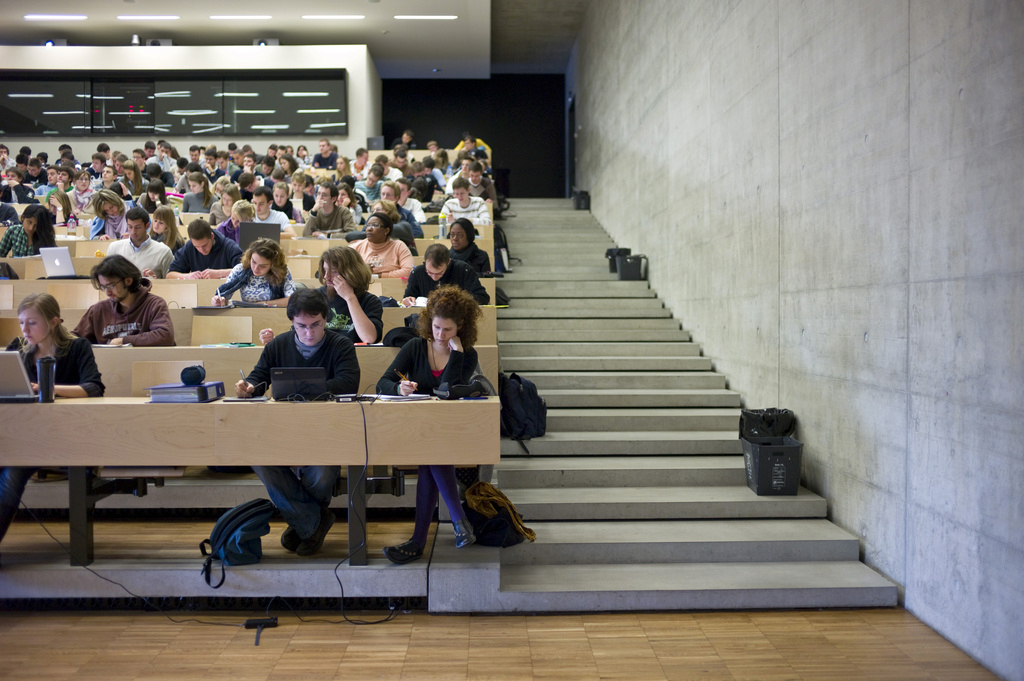

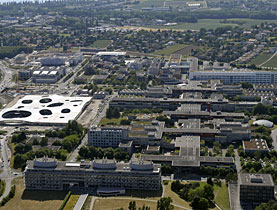
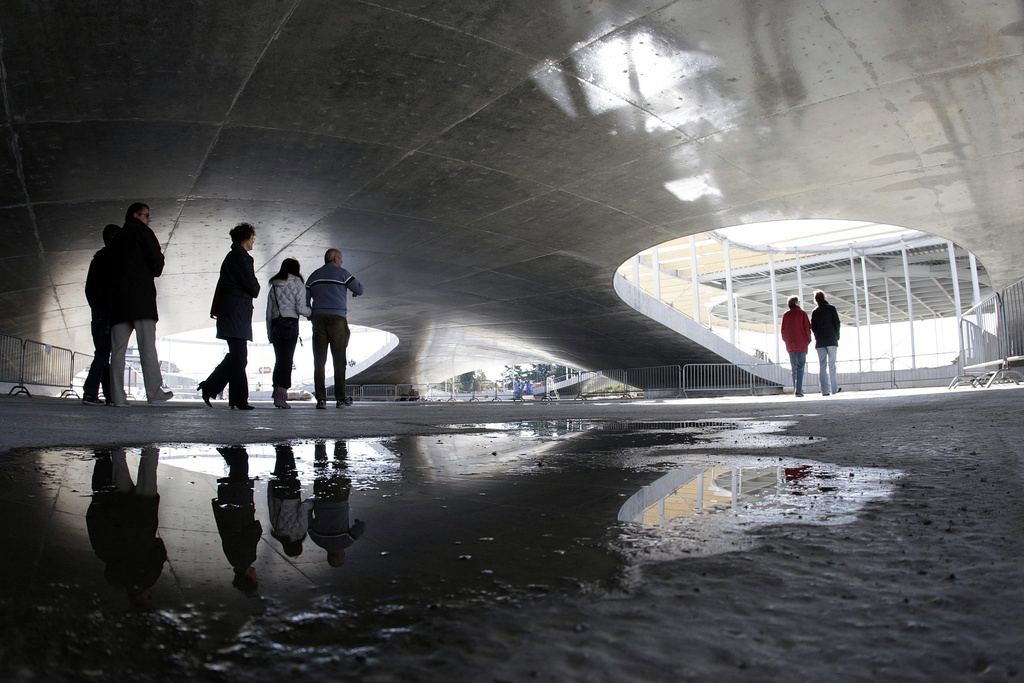
You can find an overview of ongoing debates with our journalists here. Please join us!
If you want to start a conversation about a topic raised in this article or want to report factual errors, email us at english@swissinfo.ch.